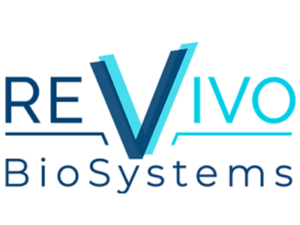Startup’s Organ-on-a-Chip System Could Help Eliminate Animal Testing
THE INSTITUTE As a youngster in his picturesque Italian hometown Ascoli Piceno, Massimo Alberti wanted to be a doctor. He also excelled in math, though, so he decided to combine the two and become a biomedical engineer. After getting his Ph.D. in microtechnology and nanotechnology, and working for several years in the biotech field, the IEEE member took his two passions to the next level in 2019.
 Alberti helped found Revivo Biosystems, a Singapore-based company whose platform can test ingredients in drugs, cosmetics, and other consumer products on human tissue samples and lab-grown simulants. The company’s organ-on-a chip-systems are disposable, multi-chamber, plastic microfluidic chips for studying the permeation and safety of chemicals.
Alberti helped found Revivo Biosystems, a Singapore-based company whose platform can test ingredients in drugs, cosmetics, and other consumer products on human tissue samples and lab-grown simulants. The company’s organ-on-a chip-systems are disposable, multi-chamber, plastic microfluidic chips for studying the permeation and safety of chemicals.
[*Note: Revivo was named a 2019 IEEE Entrepreneurship Star, previously known as IEEE N3XT Stars, during the Slingshot 2019 competition, held in conjunction with the Singapore FinTech Festival. The IEEE Entrepreneurship Stars recognition program identifies competition candidate ventures with engineering-driven innovation at their core that align with the IEEE core purpose to foster technology, innovation, and excellence for the benefit of humanity.]
A tissue sample is placed—or a human cell-based simulant is grown—in between two chambers. The chemical of interest is placed in one chamber. If any of it passes through the tissue or any marker is produced by the tissue as a response to the chemical, it is picked up by fluid flowing under the tissue in the other chamber. The fluid then is deposited in wells, so a researcher can measure how much of the chemical passed through or was released by the sample.
Conducting permeation experiments using Revivo’s system is less expensive than current methods because smaller skin tissues—as little as 50 square millimeters—can be used. Consequently, smaller amounts of the drugs can be tested, because, for the same dosage, the exposure area is smaller. And with Revivo’s platform, the testing procedures can be automated, so the labor costs can be reduced up to 10 times, Alberti says.
 Revivo’s platform can be used for a variety of human tissue models, not just skin. Tests done on such tissue are more reliable than those performed on animals, Alberti says. Animal testing not only harms animals; it’s also ineffective because animals are genetically and biologically different from humans. In addition, only about 10 percent of experimental drugs tested on animals actually reach or pass the human clinical-trial stage, Alberti says.
Revivo’s platform can be used for a variety of human tissue models, not just skin. Tests done on such tissue are more reliable than those performed on animals, Alberti says. Animal testing not only harms animals; it’s also ineffective because animals are genetically and biologically different from humans. In addition, only about 10 percent of experimental drugs tested on animals actually reach or pass the human clinical-trial stage, Alberti says.
“Having a realistic model means test results are more accurate, and it reduces the time gap between preclinical studies and clinical studies on humans,” he says. Preclinical studies help to decide whether a drug is safe, effective, and ready for further testing.
“Tests done on traditional alternatives to animals don’t mimic the function of human blood flow,” Alberti adds, “because they are based on static culture processes.” Thus those models are not realistic enough.
In contrast, the microfluidic approach enabled by Revivo’s platform re-creates conditions as close as possible to the ones in the human body, such as temperature and blood pressure. The platform promotes the right stimuli to generate the most realistic models that can be obtained in the lab, Alberti says. Also, he says, lab techs traditionally have had to “spend hours doing simple and tedious manual operations, which now can be automated.”
Go to IEEE The Institute to read the complete article.






